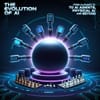The field of artificial intelligence has undergone significant transformations since the debut of AlphaGo, the AI program that defeated a human world champion in Go in 2016. Since then, AI research has expanded beyond traditional areas like computer vision and natural language processing, giving rise to new paradigms like AI agents, physical AI, and more.
One of the key developments in AI research is the emergence of AI agents, which are autonomous systems that can perceive their environment, make decisions, and take actions to achieve specific goals. These agents are being applied in various domains, including robotics, finance, and healthcare.
Physical AI is another area that has gained significant attention in recent years. This field focuses on the development of AI systems that can interact with and manipulate the physical world. Examples of physical AI include robots, drones, and self-driving cars.
Looking ahead, researchers are exploring new frontiers in AI, including the development of more generalizable and adaptable AI systems. These systems will be capable of learning from experience, adapting to new situations, and applying knowledge across different domains.
The evolution of AI is expected to have a profound impact on various aspects of society, from healthcare and education to transportation and energy. As AI continues to advance, it is essential to consider the ethical implications of these developments and ensure that they align with human values and promote the greater good.


